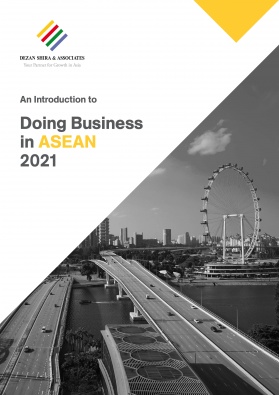Cambodia Issues Eighth Round of Economic Relief Measures for Private Sector
- Cambodia recently issued its eighth round of economic relief measures for the private sector, comprising financial aid for suspended workers and the suspension of tax obligations.
- The measures are only available for the textile, garment, footwear, and tourism sectors, which are major contributors to Cambodia’s economy.
- Suspended workers can receive up to US$40 of financial aid, with suspended workers in the textile and garment sector receiving an additional US$30 on top of the US$40, until June 2021.
- Hotels, guesthouses, and travel agents in selected regions will continue to be exempt from paying monthly taxes until June 2021.
On March 25, 2021. Cambodia’s government issued its eighth and latest round of economic relief measures for specific industries in the private sector.
The government will continue to provide financial support for workers in the textile, garment, tourism, and footwear sectors until the end of June 2021, as well as allow airline entities to continue to be exempt from paying the ‘minimum tax’ until June.
Cambodia’s textile, garment, and tourism industries play an important role in the country’s economy, contributing to over 30 percent of the total GDP combined. The textile and garment industry also contributes to over 80 percent of total exports.Further, the government will continue providing monthly tax exemptions to hotels, guesthouses, and restaurants located in selected regions in the country.
What type of support has been extended for workers in the textile, garment, and footwear sectors?
Suspended employees and workers in the textile, garment, footwear, and tourism sectors will continue to receive financial aid of up to US$40 per month until June 2021. The workers, however, must be registered with the Department of Labor and Vocational Training (DLVT).
The financial aid is also dependent on the length of time the worker has been suspended from their employment, as described below:
- US$15 for 7-10 days of employment suspension;
- US$30 for 11-20 days of employment suspension; and
- US$40 for 21 days to one month of employment suspension.
For suspended employees in the textile and garment industries, there is an added US$30 of financial support available in addition to the support mentioned above. This amounts to up to US$70 per month for eligible workers.
The subsidies are of the following amounts:
- US$10 for 7-10 days of employment suspension;
- US$20 for 11-20 days of employment suspension; and
- US$30 for 21 days to one month of employment suspension.
Tax exemption for the tourism industry
In addition to financial aid for workers in the tourism industry, hotels, guesthouses, travel agents, and restaurants that are registered with the General Department of Taxation will continue to be exempt from paying monthly taxes until June 2021.
The businesses must be located in the following regions of Cambodia:
- Phnom Penh;
- Siem Reap;
- Sihanoukville;
- Kep, Kampot;
- Poi Pet; and
- Bavet.
These businesses will also need to submit their tax returns during the exemption period.
Support for the aviation sector
Airlines operating in Cambodia will continue to be exempt from the ‘minimum tax’ until June 2021. The minimum tax due is equal to one percent of total turnover, except value-added tax (VAT), and is irrespective of whether the taxpayer is in a profit or loss situation.
About Us
ASEAN Briefing is produced by Dezan Shira & Associates. The firm assists foreign investors throughout Asia and maintains offices throughout ASEAN, including in Singapore, Hanoi, Ho Chi Minh City, and Da Nang in Vietnam, Munich, and Esen in Germany, Boston, and Salt Lake City in the United States, Milan, Conegliano, and Udine in Italy, in addition to Jakarta, and Batam in Indonesia. We also have partner firms in Malaysia, Bangladesh, the Philippines, and Thailand as well as our practices in China and India. Please contact us at asia@dezshira.com or visit our website at www.dezshira.com.
- Previous Article Transfer Pricing in Indonesia: A Guide for Foreign Investors
- Next Article Company Chops in Vietnam: Sealing the Deal







